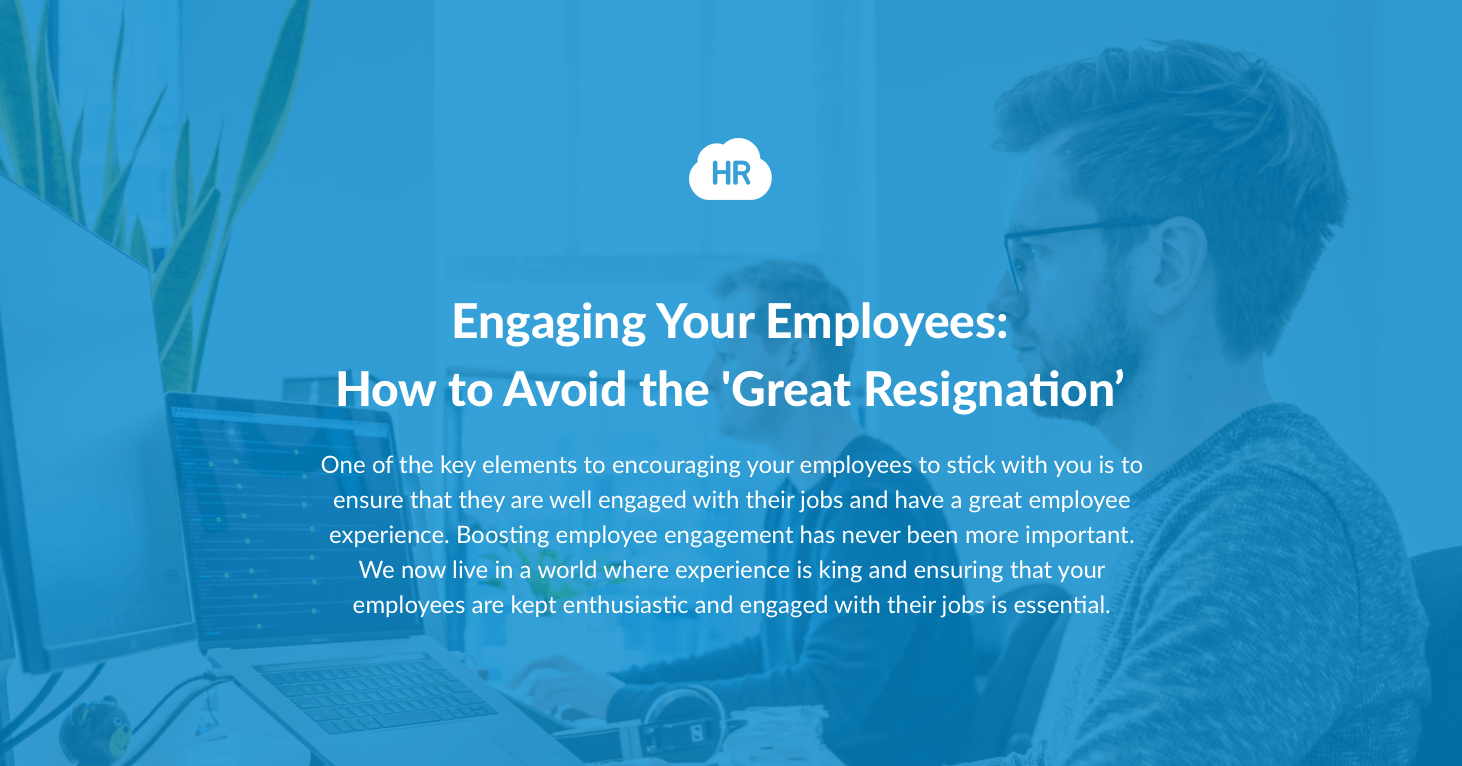Engaging Your Employees: How to Avoid The 'Great Resignation’

The growth of technology and the effect of the COVID-19 pandemic has revolutionized our relationships with our work, and as a result, the job market is booming. According to research almost a third of UK workers are planning on handing in their resignation in the next 12 months, and this is becoming known as the ‘Great Resignation’.
Employees leaving can have massive repercussions across a business, and in a market where available labor is increasingly scarce, it is essential that businesses can look at ways to keep hold of their employers and avoid the ‘Great Resignation’ from affecting you.
One of the key elements to encouraging your employees to stick with you is to ensure that they are well engaged with their jobs and have a great employee experience. Boosting employee engagement has never been more important. We now live in a world where experience is king and ensuring that your employees are kept enthusiastic and engaged with their jobs is essential.
Employee Engagement
Employee engagement is important for keeping staff happy and motivated individually and as a whole. It motivates them to work hard, gives them a little bit extra, and encourages other members of staff to do the same. An engaged employee is defined as someone who is fully enthusiastic and absorbed by their work, taking positive action to further an organization's reputation and interests. It is important to note, however, that employee engagement is not the same as employee happiness.
There are a number of different ways that you can help to improve employee engagement within your business.
Personalized Experiences
Employees are increasingly looking for a job that fits in with the life that they are aspiring to lead. This could relate to the move towards flexible working or working from home, for example in a personalized work experience. Priorities are changing in work, just as in society as a whole, and people are looking for more of a work-life balance.
Some companies are now giving their employees the opportunity to choose their own benefits, creating the ideal job uniquely for them, helping to increase their engagement with their employers, and boosting their employee retention.
Improve Mental Wellbeing
We are seeing an increased focus on mental health in society today, and, consequently, in our workplaces. Employees are no longer willing to forfeit their mental health for their work, and you should try to reflect this in the mental well-being measures that you put in place for employees.
Some incentives that you can provide include free mental health support, longer lunch breaks, and extra time off work – as well as giving employees the opportunity to work flexi-time giving them the chance to enjoy their hobbies in their free time. Having a work environment where your employees feel comfortable is key.
Check-In Regularly
The easiest way to tell whether your employees are feeling engaged with your business is to listen to them. Try to encourage regular check-ins between managing directors, managers, and their teams to facilitate feedback from both ends. This will ensure that everyone is aware of how they are doing and small issues can be ironed out effectively before they grow into larger ones.
You could think about holding feedback sessions every couple of months and ensure that you put an emphasis on listening to what your employees have to say instead of the other way round.
Nurture Social Bonds
Social bonds between members of staff are essential elements in a network of support for employees. By encouraging these social bonds, you are helping to integrate staff members into the company culture and life of the business, helping them to engage, and making them feel happier and better connected.
You could consider creating a social area within your work premises or perhaps organizing team-building outings to help to nurture these relationships.
Implement a Reward System
It can be very demoralizing when you work hard towards something and get little to no recognition for it, so try to implement a reward system for your employees to help to keep their engagement up. It is when staff do not feel that their hard work is appreciated that they begin to disengage and look elsewhere.
Try implementing rewards for achievements – although they do not necessarily need to be financial. An employee of the month award or special mention in a company newsletter could also be acceptable means of recognition.
Goal Setting
Staff is more likely to feel engaged with their work if they are aware of the progress that they are making. Professional development gives a sense of satisfaction and can be effective in motivating employees. Setting a career path and long-term goals is a great way to show staff how they are progressing, helping in motivation, and ensuring that they are always fully engaged.
Ensuring that your employees are fully engaged is essential for businesses in 2022. By putting some of these measures in place, you can not only start to reduce the risk of your business being affected by the ‘Great Resignation’, but you can also attract better quality candidates and boost your employee performance in general.
About Author:
This article is written by our marketing team at HR Cloud. HR Cloud is dedicated to providing powerful solutions for your HR teams and creating an exceptional employee experience. Our aim is to help your company improve employee engagement, onboarding, and to save you valuable time!
Keep Reading
Balancing Technology and the Human Touch in Employee Engagement
Companies are taking employee engagement very seriously because it is one of the ways of
Building Strong Teams: The Power of Team Bonding Exercises
Never overestimate the power of collaboration as a core element of effective team


